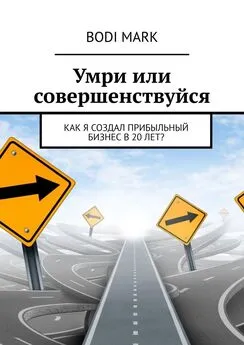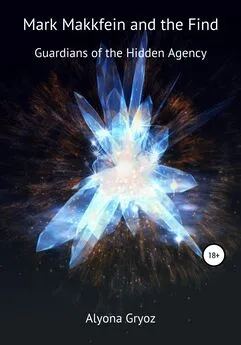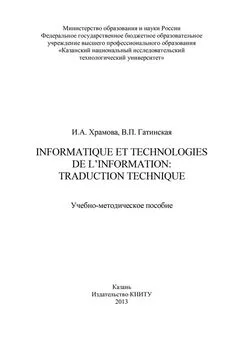Mark Mills - The Information Officer
- Название:The Information Officer
- Автор:
- Жанр:
- Издательство:неизвестно
- Год:неизвестен
- ISBN:нет данных
- Рейтинг:
- Избранное:Добавить в избранное
-
Отзывы:
-
Ваша оценка:
Mark Mills - The Information Officer краткое содержание
The Information Officer - читать онлайн бесплатно ознакомительный отрывок
Интервал:
Закладка:
“And that says it all, doesn’t it?”
He wasn’t going to argue the point, because at heart he agreed with her about the “pro-Italians” and the other “subversive elements” who had been shipped out to Uganda earlier in the year. They’d had a number of heated discussions on this thorny issue, with Max trotting out the official platitude: “Extraordinary times call for extraordinary measures.” When it came down to it, though, there was something chillingly draconian about the stretch of power that allowed the British to intern and deport Maltese citizens at will, without due process. They came from all walks of life—dockyard workers to priests, pensioners to university professors—and not one of them had ever been formally charged with a crime.
It was an injustice that had touched Lilian on a personal level. A friend of hers, the daughter of the chief justice, had spent two years under house arrest with her family before opting to board the Breconshire and follow her father into exile. Sixteen years of loyal service to the crown had, apparently, not been enough to place the family’s loyalty beyond doubt.
“You’re probably right,” conceded Max. “I’m no better than the rest of them. But maybe I’ve learned something. Maybe that’s why I’m here, why I told you.”
“Yes, you tell me, but first you make me swear my silence. I can’t stay silent.”
“You must. They’ll shut you down in a moment.”
“They can’t.”
“They told me they would. That’s what they threatened me with.”
She cast him a curious glance. “They think you care what happens to me?” She seemed almost amused by the idea.
“They’re right. I do.”
She stared down at him, her body now still, the agitation gone. He reached up, took her hand, and drew her back onto the ground beside him.
“You have to trust me. You have to let me do this my way. I need your help—a small favor—but that’s as far as your involvement goes.”
She stared off through the trees.
“What do you want me to do?” she asked eventually, without turning.
At three o’clock, when Max returned to the Information Office, an enemy air raid had yet to materialize over the island, and this had shaped itself into the hopeful speculation that the Luftwaffe had been pulled out of Sicily, summoned back to the Russian front. It had happened before, but never at this time of year, and Max remained skeptical.
At four o’clock, Elliott called from the Combined Operations Room.
“Is there anything on the table?” Max asked.
“Nothing. Niente . Nada. Dead as a dodo.”
“Maybe it’s Hitler’s birthday.”
“That was a couple of weeks back.”
Max laughed.
“It’s true. April twentieth. The sonofabitch just turned fifty-three. You’ve got to hand it to the guy: it takes a special gift to fuck up a planet in fifty-three years.”
“He’s had a little help.”
“True, but I doubt we’d be frying our asses in Malta if young Adolf had been hit by a streetcar on his way to school forty-odd years ago.”
Elliott was calling to confirm their dinner plans and to give Max directions.
“Elliott, I know where you live.”
He’d spent any number of enjoyable evenings on the roof terrace at Elliott’s apartment in Gzira.
“I’m talking about my country residence.”
“Your country residence?”
“You mean you don’t have one? Now grab a pen; it’s a little off the beaten track.”
This was putting it mildly. Wayside shrines, stone gateposts, and oddly shaped trees figured large in the directions.
“Shall we say seven o’clock?”
“With directions like these it might be nearer ten.”
Elliott chuckled. “Well, don’t expect to find any of the Chassagne-Montrachet left.”
The last town of any note before Elliott’s directions degenerated into obscure landmarks was Siggiewi. The road there ran through Qormi and Zebbug, bisecting the low southern plain, passing between the airfields at Luqa and Ta’ Qali. The men had had a whole day to lick their wounds from the previous day’s pasting, and Max could picture the scene: the ground crews and infantry busily filling bomb craters and repairing blast pens, one wary eye on the heavens. The early evening raid was due any moment. The unnatural silence that had hung over the island all day surely had to end soon.
It hadn’t by the time Max had reached Siggiewi. The inhabitants were milling around the main square, moving tentatively, unaccustomed to being aboveground at that hour. Max stopped at a bar near the church and begged a glass of water, not to slake his thirst so much as wash the dust from his mouth. An old man asked him hopefully if the war was over, and when he got back on his motorcycle, a gaggle of barefoot boys chased him through the narrow streets, falling away in dribs and drabs as he opened the throttle.
The rutted road south of Siggiewi wound its way toward the sea and one of the few corners of the island he had never explored. He knew the coastline to the east because that’s where the megalithic temples of Hagar Qim and Mnajdra were to be found, standing like two mini-Stonehenges atop the cliffs. Lilian had insisted he visit them, delivering a lecture on their unique place in the panoply of ancient European sites. She was biased. The professor of archaeology who had whisked her mother off to Italy was a leading expert on Hagar Qim. That’s how the couple had met, some years before the war, during one of the professor’s many visits to his precious temple.
To the west lay the Dingli Cliffs, mile upon mile of sheer limestone rock face rising two hundred feet from the water. The Dingli Cliffs were home to another kind of temple, one that celebrated the new technology, for it was there that the island’s primary radio direction finding station was located. In between, though, lay a stretch of coast Max hadn’t even known existed. There seemed to be only one dirt track in and out, and without Elliot’s directions he would hardly have noticed the junction.
The track elbowed its way up a hillside of stunted trees and rock-strewn fields. It then dipped away sharply toward the cliffs, before veering to the right and hugging the coastline. To his left the ground descended in narrow cultivated terraces until the slope became too steep to hold them. On his right rose a rocky escarpment. True to form, the Maltese had responded by pouncing on this meagre scrap that nature had tossed them, this precarious step of land at the edge of the world. Judging from the age of the few farmhouses he passed, people had been there for centuries, scratching a living from the powdery soil.
He was on the point of turning back when he saw the isolated chapel with the faded blue doors that Elliott had mentioned. A few hundred yards farther on he came across the sorry-looking cypress where the track bifurcated. The lower route petered out at a cluster of whitewashed farm buildings arranged around an open courtyard and towered over by two Aleppo pines. It was just as Elliott had described it, although he hadn’t mentioned the short wireless mast on the roof of the farmhouse.
Beyond the compound, the ground fell away in stone-trimmed terraces toward the cliff edge, and it was here that Max saw a tall figure silhouetted against the lowering sun. Elliott appeared to be scything grass, but as Max drew closer, it became clear that he was swinging a golf club.
Max propped the motorcycle against one of the pines and made his way over.
“Do you play?” asked Elliott.
“Badly.”
“Then you’re in excellent company.”
The tin pail at Elliott’s feet was brimming with golf balls.
“From the Marsa Golf Club,” he explained. “They’ve got no use for them anymore.” Not since the club’s fairways and greens had been plowed up and turned into allotments.
“There’s a whole load more in the barn, so don’t hold back,” he added, making for the farmhouse. He returned a little while later with the promised bottle of white burgundy, two wineglasses, and a Maltese man carrying a folding side table.
“Pawlu helps me out from time to time.”
Pawlu was the sort of fellow you’d want on your side in a fight—not tall, but thickset and bull-necked. When they shook hands, Max’s felt like a child’s in a bear’s paw.
“I am pleased to meet you.”
“Pawlu speaks good English. He used to work down at the docks as a stevedore but now has a farm up on the ridge there, as well as a beautiful wife and two young sons who make a good living picking up the golf balls that don’t go over the cliff.”
“Which is most of them.”
“He’s also extremely insolent, and I’m thinking of dispensing with his services.”
Pawlu gave a disarmingly warm smile, then excused himself. He was expected home for dinner.
Max and Elliott spent the next half hour quaffing the excellent wine and driving golf balls out to sea, toward the setting sun. Anything clearing the cliff (which required a perfectly struck three iron) scored one point; anything less scored no points, even if the ball bounced over the edge. Elliott liked to play dirty: “You’re forcing it with your shoulders” … “Stop lifting your head” … “Let the club do the work” … “You’re getting a bit wristy, must be the wine”—irritating observations intended to throw Max off his game.
They were level at a far-from-impressive four points apiece when the contest was brought to a halt by the building roar of an aircraft engine.
“Here,” said Elliott, thrusting a seven iron into Max’s hand. “You’re going to need more loft.”
“What?”
“On my word, okay?”
They both set themselves, ready to swing.
Max saw them now: four fighters coming at them from the west in wide line abreast, hugging the cliff top. They were enemy aircraft, new Me109Fs with their distinctive yellow noses.
“Now!”
They swung their clubs in unison. In his eagerness, Max topped his ball, but Elliott’s sailed high into the air with just the right amount of lead on it. For a moment it seemed that the impossible was about to be achieved, and if the ball had carried another fifty yards or so, it might well have been.
The four fighters thundered past unscathed. It was probably just a trick of the light, but Max could have sworn that he saw one of the pilots wave.
“He waved,” said Max. “One of them waved.”
“That’s because they know me.”
They were regulars, apparently, marauders who often appeared at this hour.
“They turn inland just down from here, coming at Safi and Luqa out of the low sun. Didn’t think they’d show today, though—nothing else has.”
The remote crackle of light antiaircraft fire carried up the coast to their ears.
“There they go. First action of the day.”
It also proved to be the last. By eight o’clock, there was still no sign of any bombers, and the last slither of the sun was sinking into the sea.
The warm orange light suffusing the courtyard gave way by almost imperceptible degrees to the distinctive purples and blues of a Maltese twilight. Elliott had got a fire going in an upturned dustbin lid that served as his barbecue, and a second bottle of Burgundy had appeared from the cellar. He had another white wine in mind for when the fish hit the table.
There were two of them, big and fresh and in need of gutting.
“Pawlu gets them for me.”
“I thought the fishermen had stopped going out.”
There had been a number of fatal strafing attacks on fishing boats in the last month—all part of the new policy of deliberately targeting the locals.
Читать дальшеИнтервал:
Закладка:
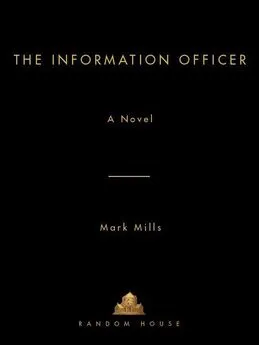

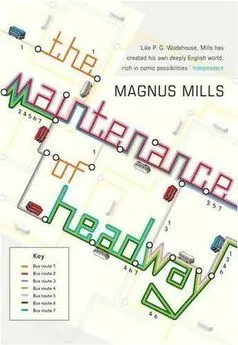

![Джеймс Купер - Пионеры, или У истоков Саскуиханны [The Pioneers, or The sources of the Susquehannah]](/books/1066142/dzhejms-kuper-pionery-ili-u-istokov-saskuihanny-t.webp)
